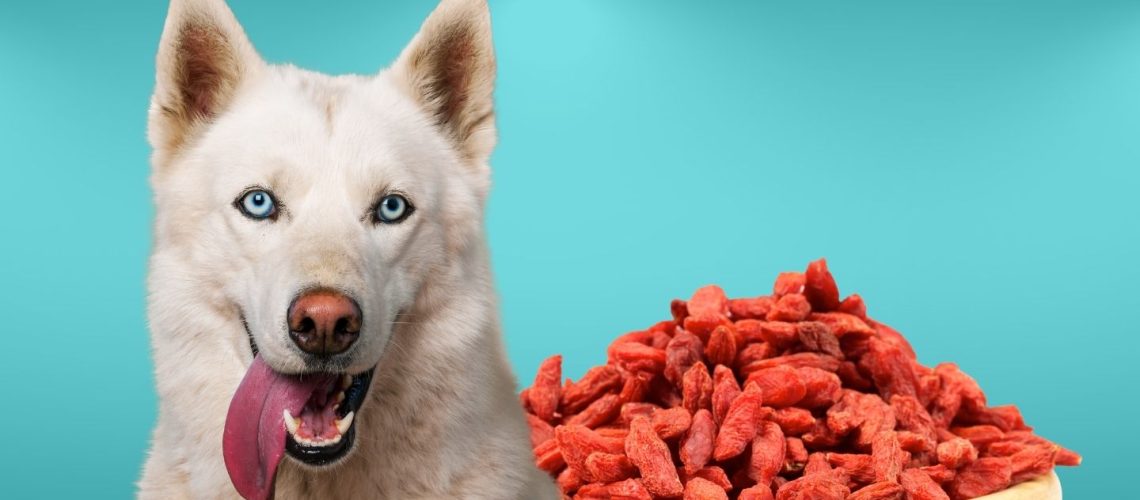The short answer is yes, dogs can eat goji berries in moderation. However, it is important to consider the potential benefits and drawbacks of feeding goji berries to your dog, as well as the proper portion size.
Nutritional Content of Goji Berries
Goji berries are a type of fruit that is native to Asia. They are often praised for their high antioxidant content, which can help protect cells from damage and support overall health. Goji berries also contain a number of other beneficial nutrients, including vitamins A and C, as well as iron and protein. They are also a good source of dietary fiber.
Antioxidant properties
Goji berries are rich in antioxidants, which help protect the body's cells from damage caused by free radicals. This can support overall health and may help prevent certain diseases.
Vitamins and minerals
Goji berries contain important vitamins and minerals, including vitamins A and C, as well as iron and protein. These nutrients contribute to overall health and wellbeing.
Fiber content
Fiber is important for maintaining digestive health, and goji berries can provide a good source of dietary fiber for your dog.
Health Benefits of Goji Berries for Dogs
Immune system support
Goji berries are rich in vitamins A and C, which can help support your dog's immune system.
Eye health
Vitamin A found in goji berries is essential for eye health and can help maintain good vision in your dog.
Anti-inflammatory properties
The antioxidants in goji berries may help reduce inflammation in the body, providing relief for dogs with arthritis or other inflammatory conditions.
Possible cancer-fighting effects
Some studies on animals have shown potential cancer-fighting effects from consuming goji berries. However, more research is needed to determine if these effects apply to dogs.
Potential Risks and Side Effects
Allergic reactions
Some dogs may be allergic to goji berries, so monitor your dog for any signs of an allergic reaction, such as itching or swelling.
Gastrointestinal upset
Consuming too many goji berries can cause gastrointestinal upset in some dogs, including vomiting, diarrhea, or constipation.
Interaction with medications
If your dog is on medication, consult with your veterinarian before feeding them goji berries, as there may be potential interactions.
Choking hazard
Goji berries can pose a choking hazard, especially for small dogs. Make sure to feed them in moderation and watch for signs of choking.
Alternatives to Goji Berries for Dogs
Blueberries
Blueberries are a safe alternative for dogs and are also rich in antioxidants.
Strawberries
Strawberries can provide a sweet treat for your dog without the potential risks associated with goji berries.
Apples (without seeds)
Apples can make a crunchy, healthy snack for your dog, as long as the seeds are removed, as they can be toxic to dogs.
Tips for Feeding Goji Berries to Dogs
Choosing high-quality goji berries
Be sure to select high-quality goji berries, without added sugars or preservatives.
Preparing goji berries for dogs
Remove any stems or leaves and wash the berries thoroughly before feeding them to your dog.
Monitoring your dog's reaction
Always monitor your dog's reaction to any new food, including goji berries, and adjust the portion size accordingly.
Frequently Asked Questions
Can dogs eat dried goji berries?
Yes, dogs can eat dried goji berries in moderation, but be aware that they may be higher in sugar content.
Are goji berries toxic to dogs?
Goji berries are not toxic to dogs; however, they should be fed in moderation to avoid potential side effects.
Can dogs eat goji berry leaves or stems?
It is best to avoid feeding goji berry leaves or stems to dogs, as they may pose a choking hazard.
Final Thoughts: Can Dogs Eat Goji Berries?
While goji berries can be safe for dogs to eat in moderation, it is important to consider the potential benefits and drawbacks, as well as the proper portion size. As with any food, it is always a good idea to consult with your veterinarian before introducing goji berries or any other new food into your dog's diet. Additionally, be sure to take into consideration your dog's overall health and nutritional needs when making dietary decisions.











